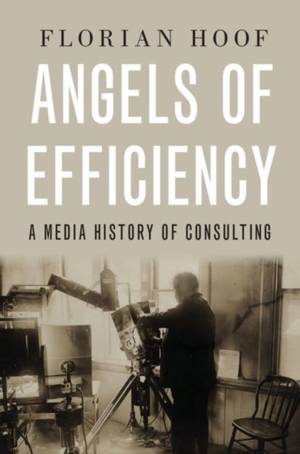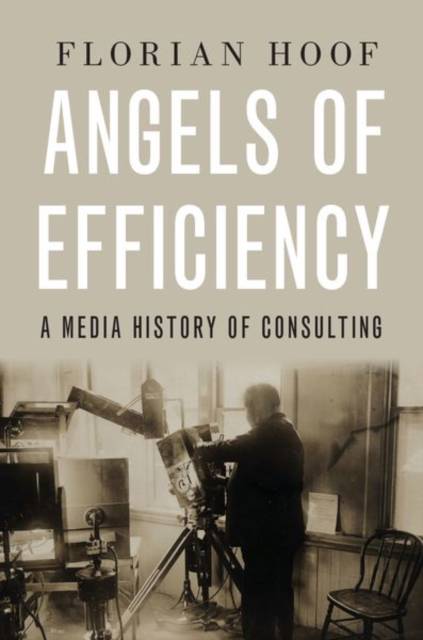
- Retrait gratuit dans votre magasin Club
- 7.000.000 titres dans notre catalogue
- Payer en toute sécurité
- Toujours un magasin près de chez vous
- Retrait gratuit dans votre magasin Club
- 7.000.000 titres dans notre catalogue
- Payer en toute sécurité
- Toujours un magasin près de chez vous
175,95 €
+ 351 points
Format
Description
Angels of Efficiency traces the invention of film and the parallel rise of management consulting, telling the story of how these together brought about new forms of information visualization and visual management. The period from 1880 to 1930, author Florian Hoof argues, saw the genesis of a form of visual knowledge that provided a novel means to intervene in management processes. Visual management largely superseded oral and written forms of communication and decision-making, instituting a strategy for overcoming the mid-nineteenth-century crisis of control and resulting in a media-based form of rationality. Focusing largely on early corporate consulting in America by tracing the careers of Frank Gilbreth and his wife and business partner, Lillian Gilbreth, Hoof examines the rise and lasting effects of corporate consulting as a visual form. Framing consulting as a cultural technique that is characterized by media processes in which the boundaries of economic logic and legitimacy emerge, Angels of Efficiency forges a new approach to the history of consulting. In addition to pioneering a new field of film and media studies, Hoof contributes original research to American cultural and economic history, such as archival findings concerning Gilbreth's consulting efforts for the German Army during WWI. With this distinct and innovative interdisciplinary approach, Hoof has marshalled cinema and media studies, business history, and science and technology studies to make sense of the rise of consulting practices and their remarkable stability to this day.
Spécifications
Parties prenantes
- Auteur(s) :
- Editeur:
Contenu
- Nombre de pages :
- 364
- Langue:
- Anglais
Caractéristiques
- EAN:
- 9780190886363
- Date de parution :
- 01-04-20
- Format:
- Livre relié
- Format numérique:
- Genaaid
- Dimensions :
- 241 mm x 159 mm
- Poids :
- 822 g







